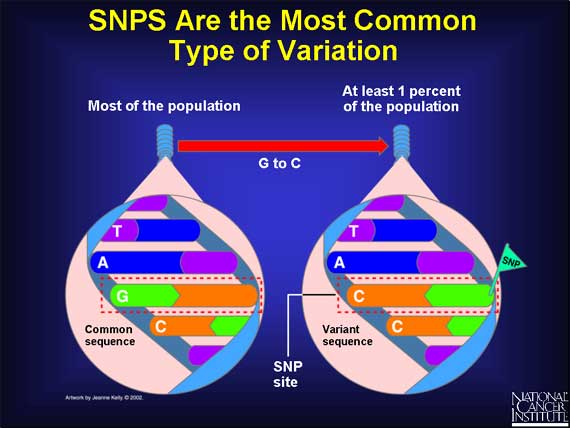|
The most common type of genetic variation is called a Single Nucleotide Polymorphism (SNP).
A SNP is defined as a single base change in a DNA sequence that occurs in a significant proportion (more than 1 percent) of a large population. The single base is replaced by any of the other three bases. Here is an example: in the DNA sequence TAGC, a SNP occurs when the G base changes to a C, and the sequence becomes TACC.

< Previous | Index | Next Slide > |